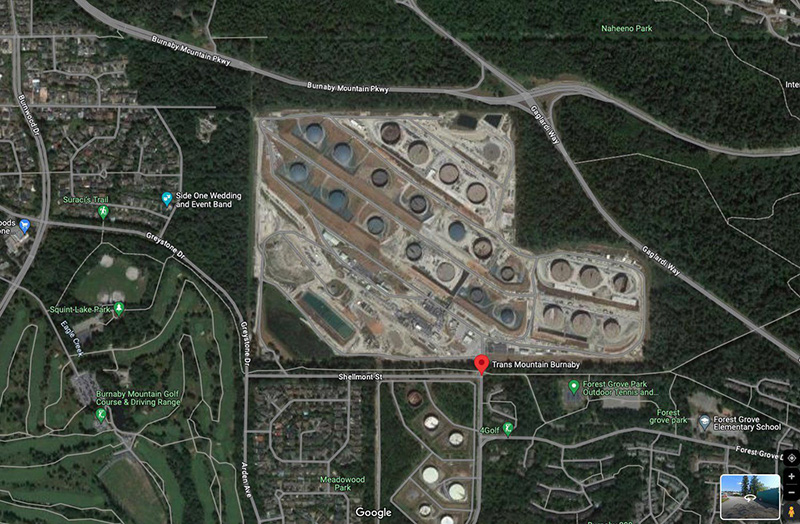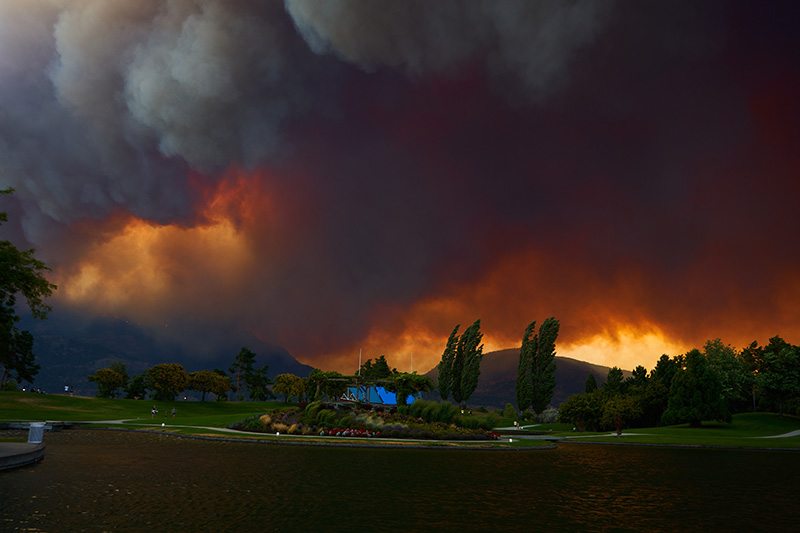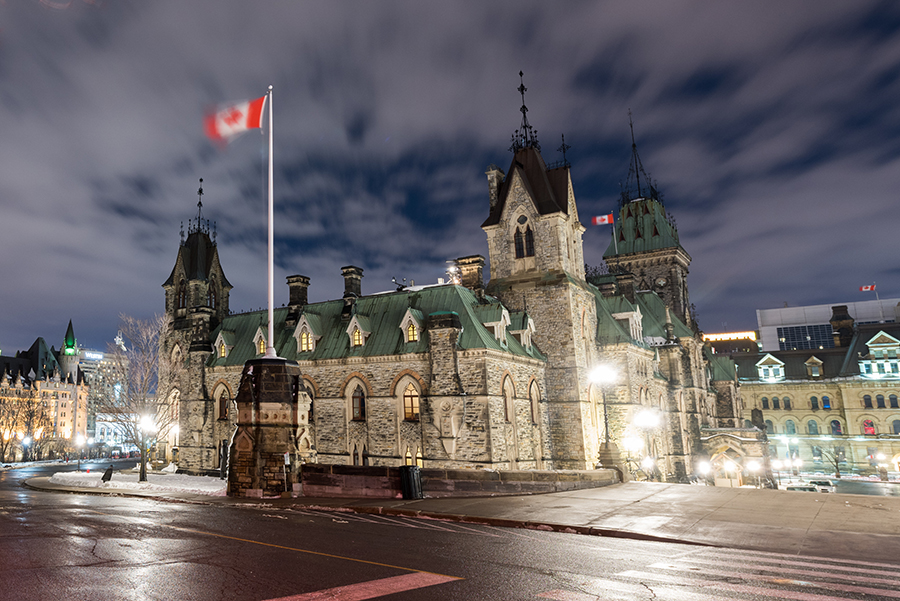Wildfires, earthquakes, and the Trans Mountain pipeline
Lubna El Elaimy,
Local Journalism Initiative Reporter
In early July, the Trans Mountain Pipeline expansion project reached a new completion milestone. The project website celebrates this achievement with moving interviews with its staff members. Delving a little deeper into the website reveals several articles about what people should or should not do near the pipeline, effectively putting the onus on residents to protect themselves and their property.
Video from the Trans Mountain Pipeline project website celebrating the completion of the pipeline.
Safety concerns about the Trans Mountain pipeline project and tank farm have surfaced again recently due to a number of interconnected issues and events. The first of these was the completion of the pipeline expansion project despite opposition from the city, residents, and climate activists.
The second was the Parkland refinery incident in January 2024, which led to the release of toxic gases into the air, negatively affecting air quality throughout Burnaby. The third issue bringing this to the front of people’s minds is the recent wildfires in BC and Alberta, which have destroyed large swaths of forest, the city of Jasper, and the displacement of thousands of people.
The Beacon spoke with Burnaby councillor Alison Gu about the costs associated with such events and how much of it the city will shoulder in the event of a disaster related to Trans Mountain. The tank farm is located in the middle of a forested and residential area on Burnaby Mountain. It is in close proximity to SFU, where thousands of students attend on a daily basis, and the UniverCity community, which is now home to almost 7,000 people.

At the council meeting on June 10, Gu brought up the issue of costs to the city. The city recently built two new fire stations on Burnaby Mountain to keep the community safe. However, the city does not have jurisdiction over the tank farm or the pipeline.
Gu spoke about the fact that the federal government is only funding 59% of the fire halls’ operational costs through the Western Economic Diversification Program and only for 15 years.
“We can estimate that it’s going to be in operation for 75 to 100 years. So if you’re looking at just the 15 years, there’s going to be $20.5 million coming from taxpayers. Beyond that, that’s probably $285 million if we’re assuming a lifetime of a hundred years,” Gu said. “We know that in Burnaby, these hydrocarbon facilities, there are fire events that happen that are supposed to be engineered out. And through human errors, lack of upkeep and maintenance, and all that, they are not engineered out. These companies that are profiting off of these facilities should be contributing a whole lot more than they currently do.”
Evacuation, fire risks, and safety
The city recently approved a new $2.1M project to build an alternative road off Burnaby Mountain to serve as a possible evacuation route in case of an incident at the tank farm. It also celebrated the official opening of Fire Station 4, which is directly adjacent to the tank farm.
While the fire station may help protect local residents, it may not be sufficiently equipped for this type of emergency in the event of a hydrocarbon fire.
“First of all, I put my cards on the table and say that having a tank farm in the middle of a large urban complex is a crazy thing. It’s inherently dangerous,” said John Clague, professor emeritus of earth sciences at SFU.
Clague said that he believes in rare, extreme events that cause the most damage as there is a lack of preparedness for them. Clague, whose specialty is natural disasters, spoke at length with the Beacon about the possibilities of catastrophe on Burnaby Mountain due to the presence of the tank farm. There are multiple possible disaster scenarios, including a remote, but not impossible, likelihood of an earthquake that could cause damage to one of the tanks, triggering a fire.
“The chances of us getting an earthquake large enough to cause a spill that would ignite is pretty low, but it is not zero,” Clague said. “Turns out that most catastrophes happen when the likelihood of something is very low, and the vulnerability is very high.”

Clague likened the federal government’s approval of the Trans Mountain tank farm and pipeline to gambling.
“In a way, Trans Mountain and our federal government are rolling the dice. They’re saying, well, we’re not going to get an earthquake like that, probably. And therefore, we can go ahead and build this tank farm and upgrade this tank farm, because, you know, 50 years from now, it’s really not going to be liable anymore, we won’t be exporting hydrocarbons.”
Other possibilities, which may be even more likely, are a wildfire on Burnaby Mountain spreading to the area and triggering damage or fire. Clague said the city’s new fire halls on Burnaby Mountain are not sufficiently equipped or staffed to fight a hydrocarbon fire.
“They’re set up to fight house fires, maybe small industrial fires. They are not equipped to deal with tank farm fires. These are crazy, out-of-control things requiring special equipment, which we don’t have in the city to fight those fires. So I think that’s a bit of a dereliction of responsibility,” Clague said.
The city has been unable to make Trans Mountain comply with its safety regulations. Gu mentioned that Trans Mountain filed a motion with the National Energy Board, currently the Canada Energy Regulator (CER), to allow Trans Mountain to circumvent Burnaby’s safety and environmental bylaws regarding its operations, and the Supreme Court ruled in Trans Mountain’s favour.
“Trans Mountain, therefore, brought a motion to the Board seeking an order that would exempt it from compliance with Burnaby’s bylaws. The motion also included a notice of constitutional question in relation to the applicability and operability of these bylaws,” said the Supreme Court’s summary of the ruling. “The Board found that Burnaby’s bylaw review process was unreasonable, and caused unreasonable delay. It relieved Trans Mountain from obtaining preliminary plan approvals and permits under Burnaby’s tree bylaw by declaring those bylaws to be inapplicable to the pipeline work at the terminal. The Federal Court of Appeal dismissed Burnaby’s application for leave to appeal.”
“Essentially, they have circumvented so many of our safety bylaws and environmental bylaws that the city puts in place,” Gu said. They went to the federal court to supersede the city’s jurisdiction.”
Residents and community groups expressed concerns about the pipeline expansion project and evacuation plans for the city.
Resident representative and member of the city’s Environment Committee, Tara Shushtarian, is a resident of Burnaby Mountain and lives in what she called the “incineration zone” of the tank farm. During the committee’s meeting on June 19, she spoke about how the city held a town hall for residents to reassure them of its safety measures.
“The fire chief did come to the Forest Grove community and we did have a town hall meeting, but as you mentioned there weren’t adequate measures in place and it’s all dependent on which way the wind blows. If you’re lucky, then you’re able to evacuate fast enough,” Shushtarian said.
Lubna El Elaimy,
Local Journalism Initiative Reporter
Burnaby Beacon






